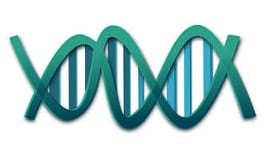In order to know the meaning of the term epigenetics that concerns us now, it is necessary, first of all, to discover its etymological origin. In this case, we can state that it is a word that derives from Greek, since it is the result of the sum of three lexical components of said language:
-The prefix «epi-«, which can be translated as «above» and «on».
-The term "genos", which means "to beget", but also "family".
-The suffix "-tico", which is used to indicate "relative to."
The adjective epigenetic is used in the field of biology to describe what is linked to epigenesis .
 Epigenesis is a doctrine that maintains that the characteristics of living beings are not pre-established in the fertilized egg, but rather acquire their disposition as development progresses.
Epigenesis is a doctrine that maintains that the characteristics of living beings are not pre-established in the fertilized egg, but rather acquire their disposition as development progresses.
The idea of epigenetics , in this framework, is linked to the analysis of the factors that interact with genes . These are factors that are determined by the environment and not by heredity.
Epigenetics, therefore, refers to various processes and reactions that, without modifying the deoxyribonucleic acid ( DNA ) sequence, change its activity. These marks are not constituted as genes, although they affect genetics.
It is important to keep in mind that the concept of epigenetics is quite recent and its scope has not yet been defined. In 1942 , Scottish biologist Conrad Hal Waddington coined the term to refer to the study of the link established between genes and the environment .
Once the Human Genome Project was concluded in 2003 , science was able to confirm that organisms are not determined by what is written in the genes: there are many factors that affect the functioning of cells, development, and the appearance of diseases. and aging. Epigenetics, in this framework, seeks to reveal what mechanisms influence the translation of the language contained in the genome.
Other important aspects about epigenetics are the following:
-It allows us to explain why two people who have the same genetic mutation do not develop a disease. That is, why one does develop it and the other does not.
-Epigenetics has become a very relevant discipline within the field of oncology . And cancer is the result of the combination of what are genetic alterations.
-It is also established that the so-called epigenetic marks, which are reversible, act as a memory for what the cell is.
-There are so-called epigenetic mechanisms, among which are DNA methylation, chromatin modifications or RNA interference.
-It is considered that it also functions as a bridge between different environmental factors and genes. And they can bring with them modifications in the so-called epigenome. We are referring to food, tobacco, stress, physical exercise...
